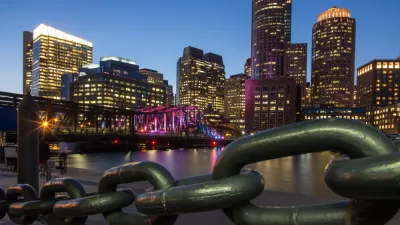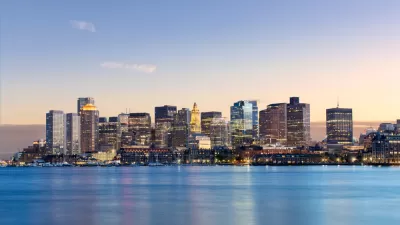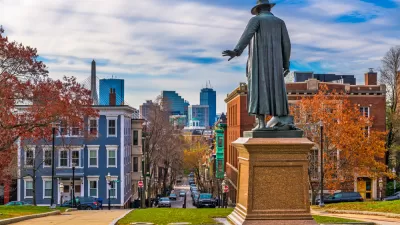A land use attorney and planning instructor at MIT and Harvard University takes to the pages of The Boston Globe to explain planning to the audience of a new era.
"When Boston Mayor Martin J. Walsh proposed a new master plan two years ago, many might have expected the effort — dubbed Imagine Boston 2030 — to alter the very look of the city," writes Matthew Kiefer to begin a recent article for The Boston Globe.
Keifer finds that Boston's master planning process is "shaping up very differently." Specifically, Keifer points to the city's "extensive outreach" and an "engaging, jargon-free draft" released in November. The final product, expected soon, "captures aspirations not just for housing but education, energy, the environment, and the arts, it’s less a plan than a set of guiding principles for equitable growth."
According to Keifer, the new directions taken by the Imagine Boston 2030 plan is a result of a new era of planning—distinct from the "urban renewal" approach of the era that produced the city's last master plan in 1965. "Urban planning, as we once knew it, is over," declares Kiefer.
FULL STORY: It’s the end of urban planning as we know it (and we feel fine)

Manufactured Crisis: Losing the Nation’s Largest Source of Unsubsidized Affordable Housing
Manufactured housing communities have long been an affordable housing option for millions of people living in the U.S., but that affordability is disappearing rapidly. How did we get here?

Americans May Be Stuck — But Why?
Americans are moving a lot less than they once did, and that is a problem. While Yoni Applebaum, in his highly-publicized article Stuck, gets the reasons badly wrong, it's still important to ask: why are we moving so much less than before?

Using Old Oil and Gas Wells for Green Energy Storage
Penn State researchers have found that repurposing abandoned oil and gas wells for geothermal-assisted compressed-air energy storage can boost efficiency, reduce environmental risks, and support clean energy and job transitions.

Colorado Lawmakers Move to Protect BRT Funding
In the face of potential federal funding cuts, CDOT leaders reasserted their commitment to planned bus rapid transit projects.

Safe Streets Funding in Jeopardy
The Trump administration is specifically targeting bike infrastructure and other road safety projects in its funding cuts.

Six Reasons Why Housing Is a Human Right
Is housing a human right? A law professor shares six reasons why it should be, from its role in protecting other rights to global recognition and U.S. legal traditions. As public support grows, could housing be the next right written into law?
Urban Design for Planners 1: Software Tools
This six-course series explores essential urban design concepts using open source software and equips planners with the tools they need to participate fully in the urban design process.
Planning for Universal Design
Learn the tools for implementing Universal Design in planning regulations.
Heyer Gruel & Associates PA
City of Moreno Valley
Institute for Housing and Urban Development Studies (IHS)
City of Grandview
Harvard GSD Executive Education
Salt Lake City
NYU Wagner Graduate School of Public Service
City of Cambridge, Maryland





























